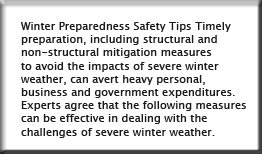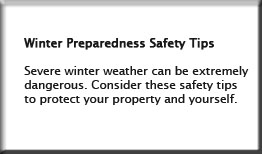Business Writing
Anyone Can Write Business Correspondence
Dixie knows no one would argue with her if she said that business writing was an essential skill for writing business correspondence. On the other hand, Dixie is convinced that everybody can write. We can speak, can't we? And all of those who are visiting this website can read. If we can speak and we can read it would be very logical to assume that we can write too, right?!
Dixie has no doubts whatsoever that it's true. Of course, writing business correspondence is a little different from writing a personal letter or e-mail. But the basic formula is the same:

Dixie has invented this formula, and she really thinks it's that simple. Remember this formula and when it looks like you are having a writer's block just tell yourself: Dixie knows I can do it, she has a simple formula proving I really can. And just start writing! You'll see how much it helps.
New Business Writing Basics
Just a second... Before you start writing, Dixie highly recommends you watch the presentation below. It is a very brief and basic refresher for improving written communication. It has just 16 slides, so it won't require much time but can do you plenty of good.
Dixie's Tips for Better Business Writing
For those of you who need some more information on business writing Dixie would like to give you 10 tips that you might find helpful.
1) To start with, write in a natural style as if you were talking to the reader. And when you are writing think of the times when you speak at your best - when your words, sentences, and paragraphs are more precise than your typical, everyday speech.
2) Good writing helps your reader see you as a real person/cat, and treats him or her as one too. Many business writers are tempted to hide behind officious, complex language, using it both to avoid saying what they mean and because so many others use it. It really is not the best thing to do.
3) You probably have noticed that we are becoming less formal in all aspects of our lives. Think how different is the language of the business correspondence written in the 1940s and 1950s from the one used nowadays. There are still a lot of business letters using the pompous language like "we shall be greatly obliged if you could favor us." or "you can rest assured that we shall make certain." This awkward language causes most of the readers to believe that the author is trying to pretend his/her letter is more important than it is.
4) But more and more people and cats use more conversational tone in business writing. Tone is essential in writing. People who read your letters, e-mails, faxes, and memos have no opportunity to interpret your body language or tone of voice, as they would in a conversation. So you just try to convey what you want to say a little clearer than when you speak. Just structure it a little more. Nothing complicated, Dixie assures you!
5) Start the piece of business correspondence with your key point - in journalism this is called your 'lead'. Let your reader know the important stuff up front. This way they understand from the beginning what you're trying to say.
6) Use a positive tone. Use negatives such as "don't," "won't," and "not" as seldom as possible in business writing, and when their use is justified, do it only to deny, not to evade or be indecisive. Instead of "We can't decide until tomorrow," write "We should decide tomorrow," or, better yet, "We will decide tomorrow."
7) Always try to be civil and friendly even if the subject matter is stern and sensitive. Give the impression to the recipient that some effort and thought has gone into the letter.
8) Dixie would also suggest you vary the length of your sentences to avoid lulling your reader to sleep. Make some short and sharp. Draw others out by linking two or three together: clip with commas, stitch with semicolons; even staple with dashes - if you like.
9) Avoid using "we" in business writing if you don't have to - use it if you are really talking about a group opinion, position, or action (such as a company policy or a decision voted on at a meeting), but don't use it to replace "I" with something more flowery. Readers like to see that you are a person, not a vague corporate "we" or an impersonal "the writer." Your reader isn't stupid and doesn't like being talked down to.
10) Even if you are writing to tell your readers something they know nothing about, think of them as intelligent but uninformed, not dumb.
Major Principles for Better Business Writing
Dixie urges you to be clear, concise and use simple language in you business correspondence. Let her expand a little:
CLEAR
The definition of clear writing is "writing that cannot be misunderstood." Every word should mean one thing, each sentence should say one thing, and together they should create a tool for achieving your goal. If your reader understands you, then does what you intend, your business correspondence succeeds.
CONCISE
Dixie cannot stress enough that in most cases a short letter is much stronger than a long one. Use concise and appropriate language. Remember that the less you say, the more you say - and this isn't a contradiction. Too often people bury important content in a flood of words and muddle their letters by straying from topic to topic. Get in, make your point, get out.
Pick the key point you want to make and stick to it. If you have more than one topic, consider saving the other ones for a different letter. Try to make your paragraphs short too, they should not exceed three or four sentences. When appropriate give concrete examples: they help hammer home your point.
SIMPLEMany people think plain language means simplistic, boring or childish, but Plain English means clear English. Think of plain English editing as cutting out the complexity and redundancy in your writing to leave a clear, streamlined and flowing style your readers can understand effortlessly. Simple writing is a sign of clear thinking and hard work. It's the writing style of the best professional writers and communicators.
Dixie wonders if you know that in 1998, President Clinton signed the Plain Language Law. It states, "Shorter is better than long. Active is better than passive. Clarity helps advance understanding. By using plain language, we send a clear message about what the government is doing, what it requires, and what services it offers. Plain language saves the government and private sector time, effort, and money."
An Example of Clearer, Shorter and Simpler Writing
Read this example and see for yourself that what was quite normal in business writing a couple of decades ago (and no doubt can still be found in present-day business correspondence) looks stilted to you as today's reader especially when you see the text before and after and can see how much better it can look put in clear, short and simple English.
BEFORE
Sample of business writing in officious language
AFTER

The above piece made clear, conscise and simple
The source of the above example is the Plain Language site.
Speaking about resources, Dixie invites you to follow the link to her Business Writing Resources Page where you will find links to great reference materials that are really indispensable for writing business correspondence.


|
Email this page | Tweet | You should click one of these buttons to share |
